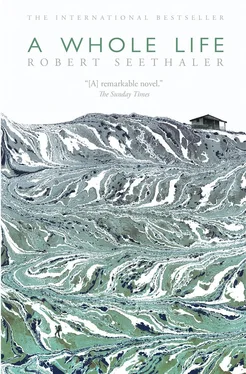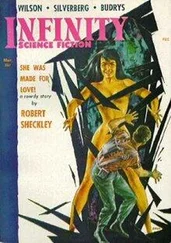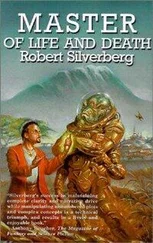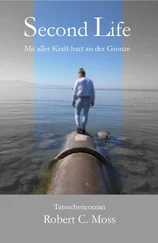‘Will you be my wife?’ he asked.
‘Yes,’ she whispered, so quietly he wasn’t sure he’d understood her correctly.
‘Will you, Marie?’ he asked again.
‘Yes, I will,’ she said, in a firm voice, and Egger felt as if he was about to keel backwards off the tree stump; but he stayed on his seat. They embraced, and when at last they let each other go the fires on the mountain had gone out.
Egger’s nights were no longer lonely now. In bed beside him lay his quietly breathing wife. Sometimes he would contemplate the outline of her body beneath the blanket: although over the weeks he had got to know it better and better, it still seemed to him like an incomprehensible miracle. Officially, he was now thirty-three years old, and he knew his responsibilities. He would protect Marie and take care of her: that was what he had told himself, and that was what he wanted to do. And that was why, one Monday morning, he came once again to stand in front of the general manager’s desk in his cabin. ‘I want more work,’ he said, turning his woollen hat in his hands.
The general manager raised his head and gave him a weary look. ‘No one wants more work.’
‘I do. Because I’m going to have a family.’
‘So you want more money, not more work.’
‘If that’s how you see it, I expect that’s right.’
‘Yes, I think that is how I see it. How much do you earn now?’
‘Sixty groschen an hour.’
The general manager leaned back and gazed out of the window, where the white tip of the Hahnenzinne stood out behind a layer of dust. Slowly he stroked a hand across his bald head. Then he exhaled heavily and looked Egger in the eyes. ‘You can have eighty, but I want you to work your backside off for every single groschen. Will you do that?’
Egger nodded and the general manager sighed. Then he said something that, although he didn’t understand it at the time, Egger was to remember all his life: ‘You can buy a man’s hours off him, you can steal his days from him, or you can rob him of his whole life, but no one can take away from any man so much as a single moment. That’s the way it is. Now leave me in peace!’
* * *
The Bittermann & Sons construction teams had now worked their way well past the tree line, leaving behind them a scar through the forest one and a half kilometres long and up to thirty metres wide in places. It was only about another four hundred metres to the planned top station just below the Karleitner peak, but the terrain was steep and inaccessible. The final stretch had to span an almost perpendicular wall capped with an overhanging rock known to the locals, on account of its shape, as the Giant’s Skull. For many days Egger hung directly beneath the chin of the Giant’s Skull, boring holes in the granite and twisting in mounting screws the size of his forearm, which would later support a long metal ladder for the maintenance technicians. He thought with secret pride of the men who would one day climb up and down this ladder, never knowing that they owed their lives entirely to him and his dexterity. During the short breaks he took to catch his breath he squatted on a ledge of rock and looked out over the valley. For some weeks now they had been gravelling and tarring the old road, and through the foggy vapour he could make out the silhouettes of men working the hot asphalt with pickaxes and shovels, so distant that they seemed to be doing so in utter silence.
In winter Egger was one of the few workers who remained on the company payroll. Along with a handful of other men, including Thomas Mattl, whose lifelong forestry experience had proven extremely useful to the company, he continued to widen the aisle and clear it of stones, waste wood and rootstocks. Often they would be standing up to their hips in snow, hacking a root out of the frozen ground, while the wind blew flakes of ice in their faces like grains of shot until their skin began to bleed. While working they spoke only when necessary, and in their lunch breaks they would sit in silence beneath a snow-covered fir tree, toasting their breadsticks over the fire. They crawled after each other through the brush, or sat in the lee of a rock during a storm, blowing on hands lacerated with cold. They were like animals, Egger thought; they crawled over the earth, relieved themselves behind the nearest tree, and were so filthy they could barely be distinguished from their surroundings. Often, too, he thought of Marie, who was waiting for him at home. He was no longer alone, and although this feeling was still an unaccustomed one, it warmed him more than the fire into whose embers he thrust his rock-hard, frozen boots.
In the spring, after the onset of the snowmelt, when a mysterious dripping and burbling had begun all over the forest, there was an accident in Egger’s team. They were working on a Swiss stone pine that had buckled under the weight of the snow, when the tension in the wood released itself with a sharp crack. A splinter the height of a man sprang from the trunk, ripping off the young lumberjack Gustl Grollerer’s right arm, which, as bad luck would have it, he had raised high above his head again ready for the next blow of the axe. Grollerer collapsed to the ground and stared at his arm. It lay on the forest floor two metres away, its fingers still gripping the hatchet. For a moment a strange silence settled over the scene, as if the whole forest had frozen and were holding its breath. In the end it was Thomas Mattl who was first to move. ‘Jesus,’ he said, ‘that looks bad.’ He went to the toolbox, fetched a wire loop for scraping off bark and, using all his strength, pulled it tight around the stump of Grollerer’s arm, which was gushing dark blood. Grollerer bellowed and thrashed from side to side, then lay still, unconscious.
‘We’ll soon fix this,’ said Mattl, wrapping his handkerchief around the wound. ‘Nobody bleeds to death that quickly!’ One of the men suggested cutting branches to make a stretcher. Another started to rub the stump with a handful of forest herbs, but was quickly pushed aside. Eventually they agreed that it would be best to carry the injured man down to the village as he was, strap him to the back of a diesel truck and drive him to hospital. The machine fitter from Lombardy lifted Grollerer off the ground and laid him across his shoulders like a limp sack. A brief discussion ensued as to what should happen to the arm. Some suggested they should pack it up and take it with them: perhaps the doctors could sew it back on. Others contradicted them: not even the most fiendish of doctors had ever sewn an entire arm back on, and even if they somehow managed to do such a thing it would just hang there at Grollerer’s side for the rest of his life, slack and ugly and making things difficult for him. It was Grollerer himself who put an end to the discussion when he regained consciousness, lifted his head from the fitter’s shoulder and said: ‘Bury my arm in the forest. Maybe a blackcurrant bush will grow out of it!’
While the other men headed down to the village with Gustl Grollerer, now an ex-lumberjack, Egger and Thomas Mattl stayed behind at the scene of the accident to bury the arm. The leaves and earth it lay on were dark with blood and its fingers felt waxen and cold as they prised them from the handle of the axe. A little jet-black long-horned beetle was sitting on the tip of the index finger. Mattl held the stiff arm out in front of him and examined it with narrowed eyes. ‘It’s strange,’ he said. ‘A moment ago this was still part of Grollerer. Now it’s dead and worth not much more than a rotten branch. What do you reckon — is Grollerer still Grollerer now?’
Egger shrugged his shoulders. ‘Why not? He’s Grollerer, with only one arm.’
‘What if the tree had ripped off both arms?’
Читать дальше











